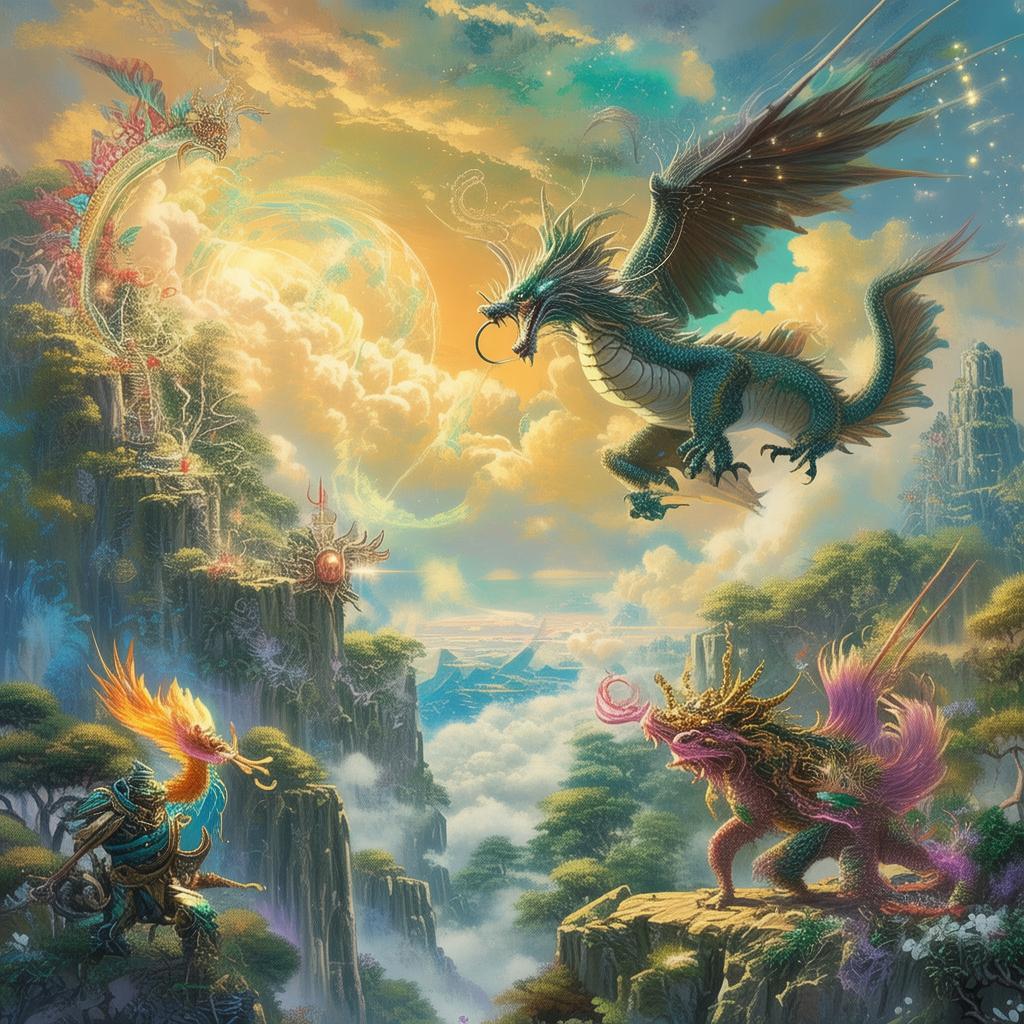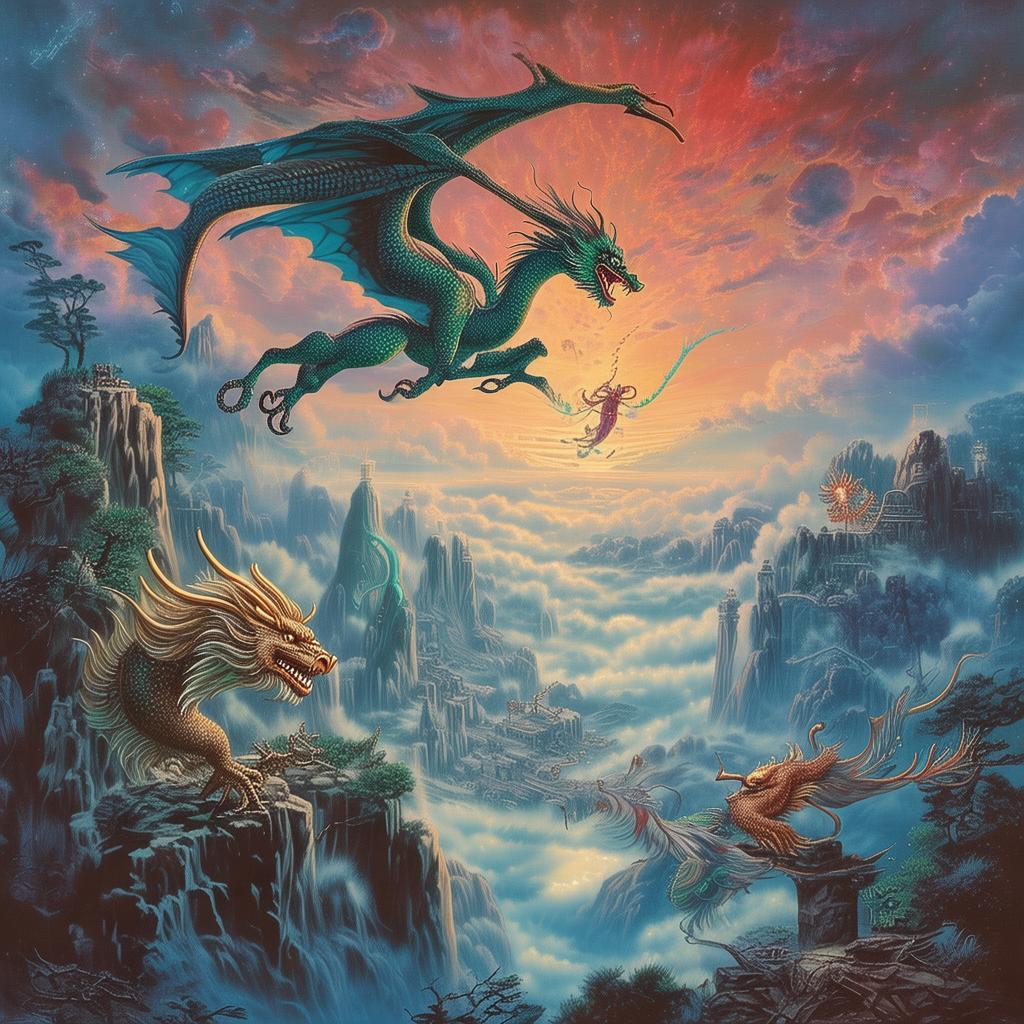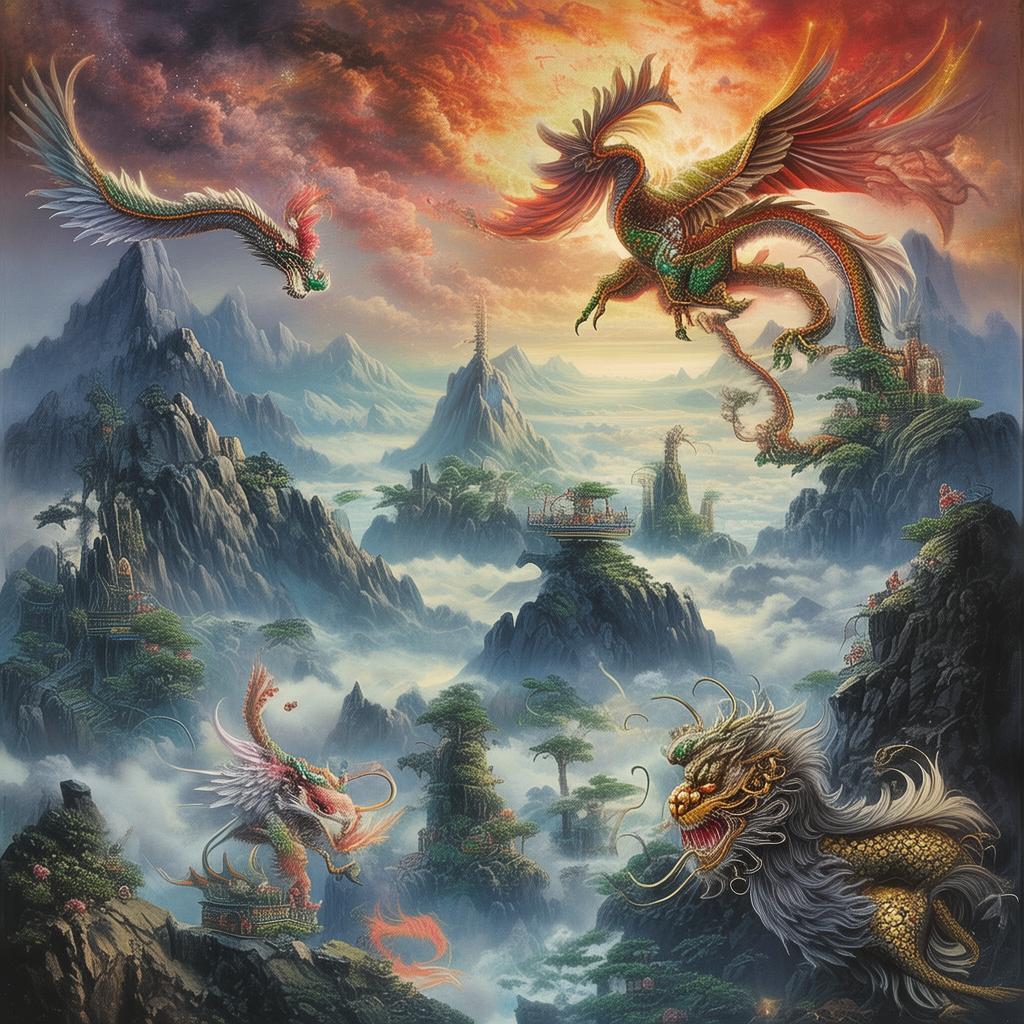The Coliseum's Echoes: A Gladiatorial Rebirth
In the heart of Rome, where the Coliseum stood as a testament to the might of the Roman Empire, lay a forgotten relic, a gladiator's helmet etched with runes that whispered tales of ancient power. The helmet had been lost to time, its origins shrouded in mystery, until it was rediscovered by a curious archaeologist named Aria.
Aria's life had been uneventful, a string of small discoveries and academic papers that barely made a ripple. But the gladiator's helmet was different. It felt alive, as if it were calling to her, drawing her into a world she had never known. As she examined the runes, she felt a surge of energy, and a vision of a young man clad in armor, his eyes alight with determination, flooded her mind.
The vision was short, but it was enough to captivate Aria. She knew she had to find out more about this man and the helmet. She began to research the Coliseum's history, uncovering stories of gladiators who fought for their lives, their courage and skill celebrated in songs and legends. Among these stories was the tale of a gladiator named Lucius, who was said to have been the greatest of his time, a man who could turn the tide of battle with a single blow.
As Aria delved deeper, she discovered that Lucius had not only been a warrior but also a seer, capable of seeing beyond the veil of time. It was rumored that he had made a pact with the gods, promising to protect Rome in exchange for eternal life. The helmet, it seemed, was the key to his power.
One evening, as Aria stood before the helmet in her small, cluttered study, she felt a strange pull. She reached out and touched the cool metal, and in an instant, she was transported to ancient Rome. She found herself in the Coliseum, amidst the roar of the crowd, the scent of sweat and blood filling the air. She was Lucius, the gladiator.
Aria/Lucius felt the familiar thrill of battle as he stepped into the arena. The sand beneath his feet was firm and cool, the crowd's cheers were deafening. He faced his opponent, a massive man with a club, and the fight began. The battle was fierce, but Aria/Lucius's instincts were sharp, honed by centuries of combat. He fought with a grace and ferocity that left the crowd in awe.
After the fight, Aria/Lucius was approached by a mysterious figure who offered him a chance to escape the cycle of gladiatorial combat. The figure revealed that he was a guardian of the ancient world, tasked with protecting the secrets of the past. He explained that the helmet was a source of immense power, and that Aria/Lucius could use it to influence events in the present.
Aria/Lucius, now back in her study, pondered the guardian's offer. She knew that using the helmet's power would come with a cost, but she also knew that Rome needed protection. She decided to accept the guardian's proposal, and the helmet began to glow with an otherworldly light.
The next day, Aria was at her desk, working on a paper about Lucius when her phone rang. It was a call from an old friend, who had been working on a project about the Coliseum's recent renovations. He had found a hidden chamber beneath the arena, filled with ancient artifacts and a strange, glowing object that seemed to be the source of the chamber's power.
Aria immediately recognized the object as the helmet of Lucius. She knew that the chamber was a relic of the past, a place where the ancient and the modern could intersect. She decided to take a trip to the Coliseum to see the chamber for herself.
When Aria arrived at the Coliseum, she found her friend waiting for her. They descended into the hidden chamber, where the glow of the helmet was even brighter. Aria reached out and touched the helmet once more, and she was transported back to ancient Rome.
This time, she found herself in the presence of the guardian, who was now an elderly man with a long white beard. He thanked Aria for her bravery and dedication, explaining that she had become the new guardian of the ancient world. The helmet was now hers to command, but with great power came great responsibility.

Aria/Lucius accepted her new role, knowing that she could use her knowledge and the helmet's power to protect Rome and the world beyond. She returned to the modern world, her heart filled with a sense of purpose. She continued her research, uncovering more about the ancient world and the secrets it held.
As time passed, Aria became a symbol of hope and strength, a reminder that the past and the present could be connected. The Coliseum's Echoes continued to resonate, not just in the ruins of ancient Rome, but in the hearts of all who believed in the power of legacy and the eternal bond between the past and the future.
In the end, Aria found that the helmet was not just a source of power, but a symbol of rebirth. It had brought her back to life, not just physically, but spiritually, as she had found her true calling and purpose. And so, the legend of Lucius and the gladiator's helmet lived on, a testament to the enduring strength of the human spirit and the power of legacy.
✨ Original Statement ✨
All articles published on this website (including but not limited to text, images, videos, and other content) are original or authorized for reposting and are protected by relevant laws. Without the explicit written permission of this website, no individual or organization may copy, modify, repost, or use the content for commercial purposes.
If you need to quote or cooperate, please contact this site for authorization. We reserve the right to pursue legal responsibility for any unauthorized use.
Hereby declared.









